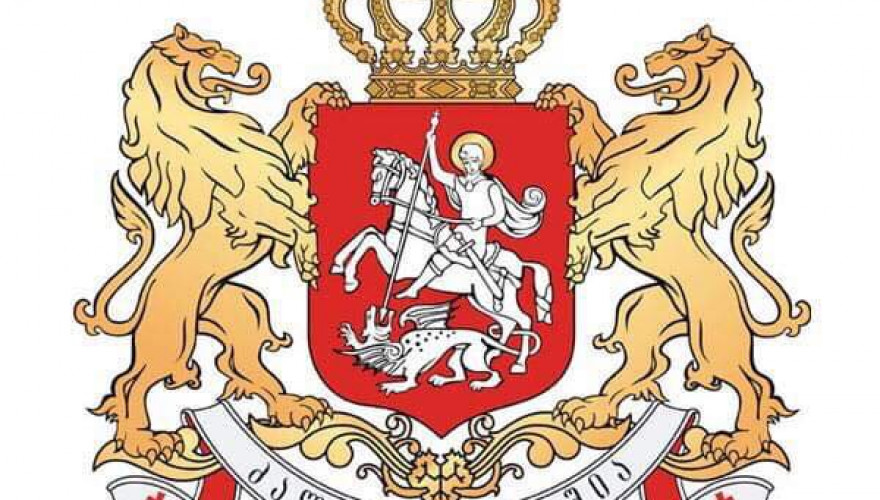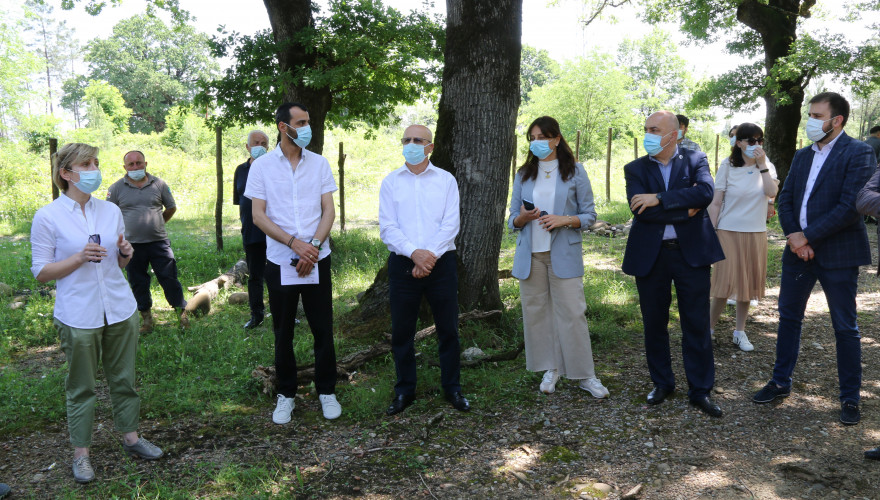Guguli Magradze and Eka Beselia participated in the online conference on Hate Speech

On November 26, the online conference was organized backed by the UNDP and Swiss Government within the 16-day campaign countering the violence against women.
The attendees discussed the importance of gender-sensitive speech in the social media era. The Members of the Georgian Parliament, Guguli Magradze and Eka Beselia attended the conference along with the representatives of the NGOs qualified in the gender equality, media and democratic development spheres, as well as the state agencies, media and international organizations.
Georgian women often encounter the humiliating rhetoric, sexist insult and clear menace. Recently, these events moved from traditional media to social networks. The UNDP, in cooperation with our partners, facilitates the creation of an effective mechanism to counter this alarming tendency as the UNDP Resident Representative, Louisa Vinton stated.
“The public life against the pandemic has moved to the social networks, though this tendency was noticed during the last decade as well. Compared to traditional media, it is complicated to monitor social networks and is almost impossible to establish mutual respect and public unity standards. These conditions complicate the elimination of the damage inflicted to women in the wide society”, - the Deputy Head of Swedish Embassy, SIDA Director Erik Illes noted.
The Advisor to the Prime Minister of Georgia for the Human Rights and Fender Equality Affairs, Lela Akiashvili noted that pursuant to the UN Resolutions, human rights shall be equally protected online, including from verbal humiliation and cyber-crime.
“Providing anonymity and separation, the internet sphere provides higher opportunities for the human attack, which may lead even to the cyber-crime. Georgia has taken significant steps in this direction but much has to be still done to ensure equal protection of human rights in every sphere”, - she stated.
The attendees of the conference got cognizant of the survey analysis backed by the UNDP. The Union “Safari” has developed the indices to detect the classification of the gender-insulting speech and respective violations.
Based on this method, NGO “Media Development Fund” has upheld the social media monitoring prior to the Parliamentary Elections 2020 and revealed up to 200 cases of discriminative, sexist and hate speech against female politicians, including the insults about the age, appearance etc.
In her speech, G. Magradze noted that women take an active part in the public and political life in Georgia and they often underline the circumstances that the discriminative, sexist and humiliating speech serves the only reason for the lack of women in politics. The surveys represented at the conference revealed the gender-humiliating speech characteristic for Georgia – this is the age, as the basis for the insult against women politicians. If women politicians are young, they say she is too young for the politics, and if the women politicians are aged, then the accusations state that they are too old for the politics, while the same factor never serves as the basis for the bulling against men.
G. Magradze stressed the paradox for Georgian culture and the values, such as the family to decline and discriminate against women politicians.
“Women politicians are often accused of lacking the skills for the politics as the kitchen is the very place for them. I believe, the authors of such speech decline the concept of the family against the politics”, - she noted.
The attendees noted that none of the parties running for the elections other than Eka Beselia’s party mentioned gender equality in their programs.
According to the authors of the surveys, the surveys are to be introduced to the political parties and the wide society.





